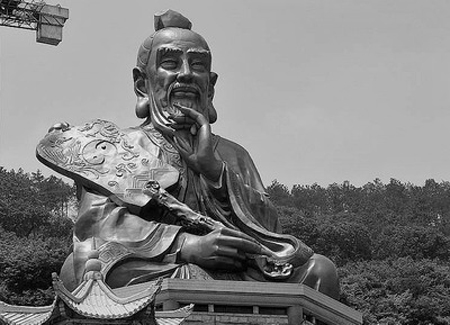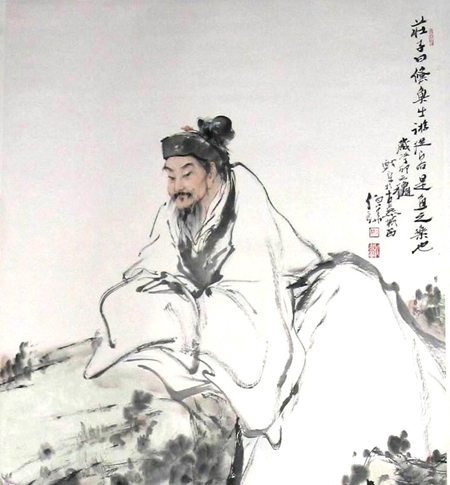Laozi

Laozi is a legendary Daoist philosopher, the alternate title of the early Chinese text better known in the West as the Daodejing, and the moniker of a deity in the pantheon of organized "religious Daoism" that arose during the later Han dynasty (25-220 CE). Laozi is the pinyin Romanization for the Chinese characters, which mean "Old Master". Laozi is also known as Lao Tan ("Old Tan") in early Chinese sources. The Zhuangzi is the first text to use Laozi as a personal name and to identify Laozi and Lao Tan. The earliest materials associated with Laozi are in the Zhuangzi's Inner Chapters. The Outer Chapters of that work have ten logia in which Laozi is the main figure, four of which contain direct attacks on the Confucian virtues of ren, yi, and li that are reminiscent of passages from the Daodejing and probably date from the period in which that collection was reaching some near final form. The earliest ascription of authorship of the Daodejing to Laozi is in Han Feizi and the Huainanzi, but several themes from the Laozi logia of the Zhuangzi are traceable into the Daodejing and on at least two occasions in that text Laozi counsels following dao (the Way) to possess de (virtue). Laozi became a principal figure in institutionalized religious forms of Daoism. He was often associated with many transformations and incarnations of the dao itself.
Chuang Tzu

Chuang Tzu (369 - 268 B.C.) was a leading thinker representing the Taoist strain in Chinese thought. Using parable and anecdote, allegory and paradox, he set forth the early ideas of what was to become the Taoist school. Central in these is the belief that only by understanding Tao (the Way of Nature) and dwelling in unity can man achieve true happiness and be truly free, in both life and death. Witty and imaginative, enriched by brilliant imagery, making sportive use of both mythological and historical personages (including even Confucius), the book, which bears Chuang Tzu's name, has for centuries been savored by Chinese readers. Chuang Tzu espoused a holistic philosophy of life, encouraging disengagement from the artificialities of socialization, and cultivation of our natural "ancestral" potencies and skills, in order to live a simple and natural, but full and flourishing life. He was critical of our ordinary categorizations and evaluations, noting the multiplicity of different modes of understanding between different creatures, cultures, and philosophical schools, and the lack of an independent means of making a comparative evaluation. He advocated a mode of understanding that is not committed to a fixed system, but is fluid and flexible, and that maintains a provisional, pragmatic attitude towards the applicability of these categories and evaluations.